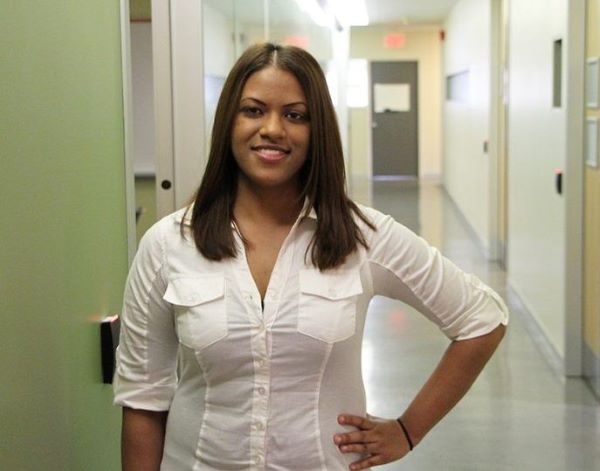
A little extra effort and a close eye from a student sonographer had a big impact on the life of one patient.
Now, that patient, Mr. W, who asked that his name not be used, is extending his gratitude to a recent Ultrasound graduate from The Michener Institute of Education at UHN for her instrumental role in the early detection of his bladder cancer.
Mr. W arrived at a Stouffville imaging clinic in April of this year for a routine ultrasound appointment following a fatty liver disease diagnosis a year earlier.
In his early 50s and a non-smoker, Mr. W had avoided many of the usual major risk factors for developing bladder cancer. However, the recent death of his father from prostate cancer and two uncles battling prostate cancer had him worried: could he be at risk of developing cancer too?
During the exam, Mr. W mentioned this family history to Shivani Kasee, then an Ultrasound student at Michener who was completing her clinical rotation as part of the final stages of her formal education. He asked Shivani if ultrasound would show any signs of cancer.
 Based on Mr. W’s family history, Shivani briefly extended the exam to see if there was any cause for concern. When performing an ultrasound scan in the abdominal area, Shivani explains, “Part of the protocol for my clinical site is to check the pelvis anyway. We don’t do a full exam of the area, we just take a look.”
Based on Mr. W’s family history, Shivani briefly extended the exam to see if there was any cause for concern. When performing an ultrasound scan in the abdominal area, Shivani explains, “Part of the protocol for my clinical site is to check the pelvis anyway. We don’t do a full exam of the area, we just take a look.”
Small mass discovered
All it took was a quick scan for Shivani to see something unusual: a small mass in Mr. W’s bladder, no bigger than the size of a dime. Shivani suspects that a previous scan a year earlier would have easily missed the mass because it was so small.
With the go-ahead from her supervisor, Shivani extended the exam further and told Mr. W that his doctor would follow up. A few days later, the bladder cancer diagnosis was confirmed.
“It was somewhere between Stage 0 and Stage 1,” says Mr. W. “My urologist was surprised it was caught so early.”
The urologist told Mr. W that bladder cancer isn’t usually detected until people start displaying symptoms such as pain or blood during urination. Aside from frequently needing to use the bathroom, which Mr. W assumed was simply an overactive bladder, he was symptom-free.
Within 10 days, Mr. W was in surgery to have the tumour removed. Now, he has a cystoscopy every three months. As long as the cancer doesn’t come back, that test will drop down to once a year.
Cancer-free, Mr. W says his health is back to normal and he’s feeling “perfectly alright.” He gives credit to Shivani for detecting the cancer and having a huge impact on his life. Yet when Mr. W reached out to Michener to share his story, he wasn’t even sure if Shivani was aware of the impact he had on her.
“She might not even know that through her extra work she was able to detect very early stage bladder cancer,” Mr. W says.
‘Case was always on my mind’
In fact, the ultrasound appointment was the end of Shivani’s interaction with Mr. W. Only later did she hear that the scan she performed led to important follow-up care for Mr. W, though she was not aware of many of the details.
“That case was always on my mind,” says Shivani. Now a practicing sonographer after graduating in June, she credits her experience with Mr. W for impacting the way she scans all of her ultrasound patients.
“Once you find something, you realize how important it is,” she says.
She explains that it’s common to do an extra sweep of an area close to the part of the body being examined, whether based on protocol, patient family history or the patient mentioning pain.
“It takes about 30 seconds,” she explains. “Most of the time you won’t see anything, but when you do, those are the examples that stick out to you. Then you realize how important it is to always check.”
For taking the extra time, Mr. W says to Shivani: “Thank you very much for going out of your way to help detect my bladder cancer.
“I’m really grateful, and my family is grateful. She sets a great example for other sonographers to go out of their way to test based on family history.”